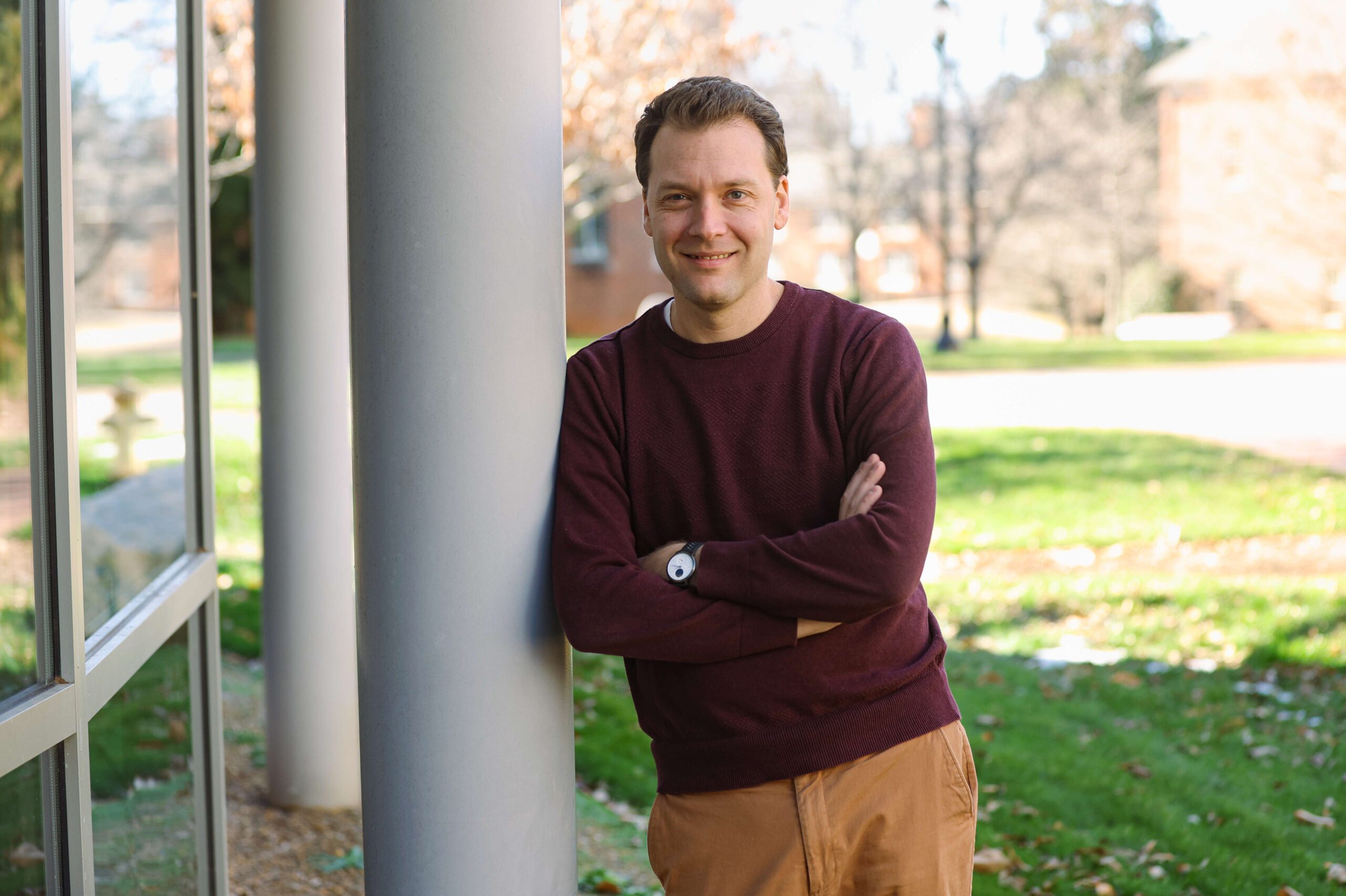
Matthew Cohen
Associate Professor, Sustainability Science
- Email: matthew.cohen@furman.edu
- Phone: 864.294.2505
- Office: Plyler Hall 119B
Dr. Matt Cohen joined Furman in 2015 after completing a Ph.D. in sustainability from Arizona State University. Dr. Cohen's interests lie in envisioning sustainable futures and working with to students to create solutions to complex sustainability problems we face today. Dr. Cohen is dedicated to student-centered learning and engages students through activities that foster discovery and facilitate students developing their own understanding and growth.
Education
- Ph.D., in Sustainability, Arizona State University
- M.S., in Climate Science and Solutions, Northern Arizona University
- Master of Community Planning, University of Cincinnati
- B.A., in International Studies, Centre College
Philosophy
Dr. Cohen is a constructivist educator and dedicated to student-centered learning. In class, Dr. Cohen engages students through activities that foster discovery and facilitate students developing their own understanding and growth.
In labs, Dr. Cohen engages his students through project-based learning to empower them to transition from passive learners and to become engaged problem solvers. Under a model of Trasformational Sustainability Learning, Dr. Cohen's students work through a framework to analyze, understand, and solve real sustainability problems. Through this process, students practice and develop five key competencies required of sustaianbility problem-solvers: systems thinking, future thinking, values thinking, strategic thinking, and interpersonal thinking.
Research Interests
Dr. Cohen's expertise includes urban sustainability, climate action, community engagement, and sustainability education.
Publications
- Miles, A.*, Quinn, J., Cohen, M. (2023). Missing goals yet tangible indicators within sustainability assessment literature: The need to align planning and monitoring in urban sustainability. Cities and the Environment.16(1): 1-18.
- Brundiers, K., Barth, M., Cebrián Bernat, G., Cohen, M., Diaz, L., Dripps, W., Habron, G., Harré, N., Jarchow, M., Losch, K., Michel, J., Mochizuki, Y., Remington-Doucette, S., Rickmann, M., Parnell, R., Walker, P., Zint, M. (2021). Key competencies in sustainability in higher education – Towards an agreed-upon reference framework. Sustainability Science. 16: 13-29.
- Quinn, Q., Cohen, M. (2021). Using COVID-19 to teach sustainability futures thinking. In: Filho, L. (Ed.). COVID-19: Paving the Way for a More Sustainable World. (Springer), 411-426.
- Slifer, A.*, Dailey, H., Cohen, M. (2019). Opportunities and benefits of a university-based weatherization assistance program: The case of Furman University’s Community Conservation Corps. Sustainability: The Journal of Record. 12(6): 296-303.
- Cohen, M., Quinn, J., Marshall, D.*, Sharp, T.* (2019). Sustainability assessment of a community open space vision. Sustainability Science. 14(6): 1565-1580.
- Cohen, M., Habron, G., (2018). How does the New Urban Agenda align with comprehensive planning in U.S. Cities? A case study of Asheville, North Carolina. Sustainability, 10, 4590.
- Cohen, M. (2017). A systematic review of urban sustainability assessment literature. Sustainability, 9(11), 2048.
- Cohen, M., Wiek, A. (2017). Identifying misalignments between public participation process and local context in urban development. Challenges in Sustainability, 5(2), 11-22.
- Wiek, A., Bernstein, M., Foley, R., Cohen, M., Forrest, N., Kuzdas, C., Kay, B., Withycombe Keeler, L. (2016). Operationalising competencies in higher education for sustainable development. In: Barth, M., Michelsen, G., Rieckmann, M., Thomas, I. (Eds.). Handbook of Higher Education for Sustainable Development (Routledge), 241-260.
- Cohen, M., Wiek, A., Kay, B., Harlow, J. (2015). Aligning an urban development public participation process to participants’ sustainability literacy: The case of Reinvent Phoenix. Sustainability, 7(7), 8709-8728.
- Cohen, M., Schugurensky, D., Wiek, A. (2015). Citizenship education through participatory budgeting: The case of Bioscience High School in Phoenix, Arizona. Curriculum and Teaching, 30(2), 5-26.
0